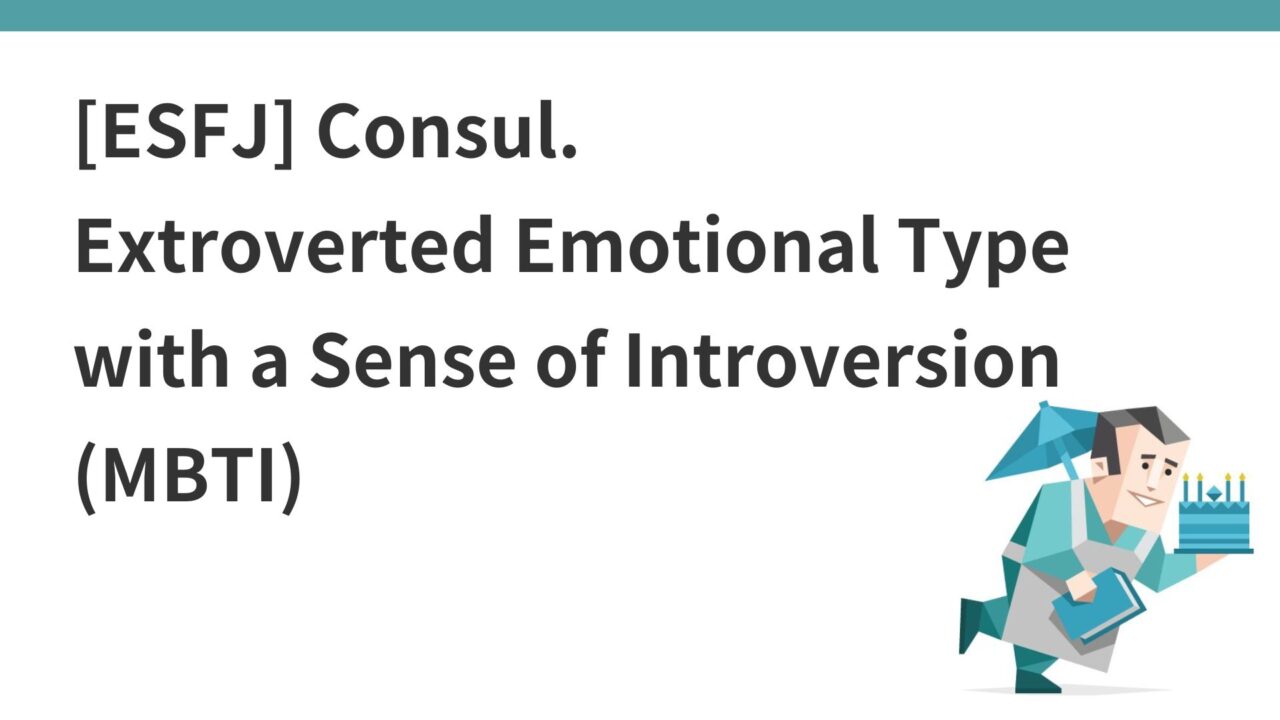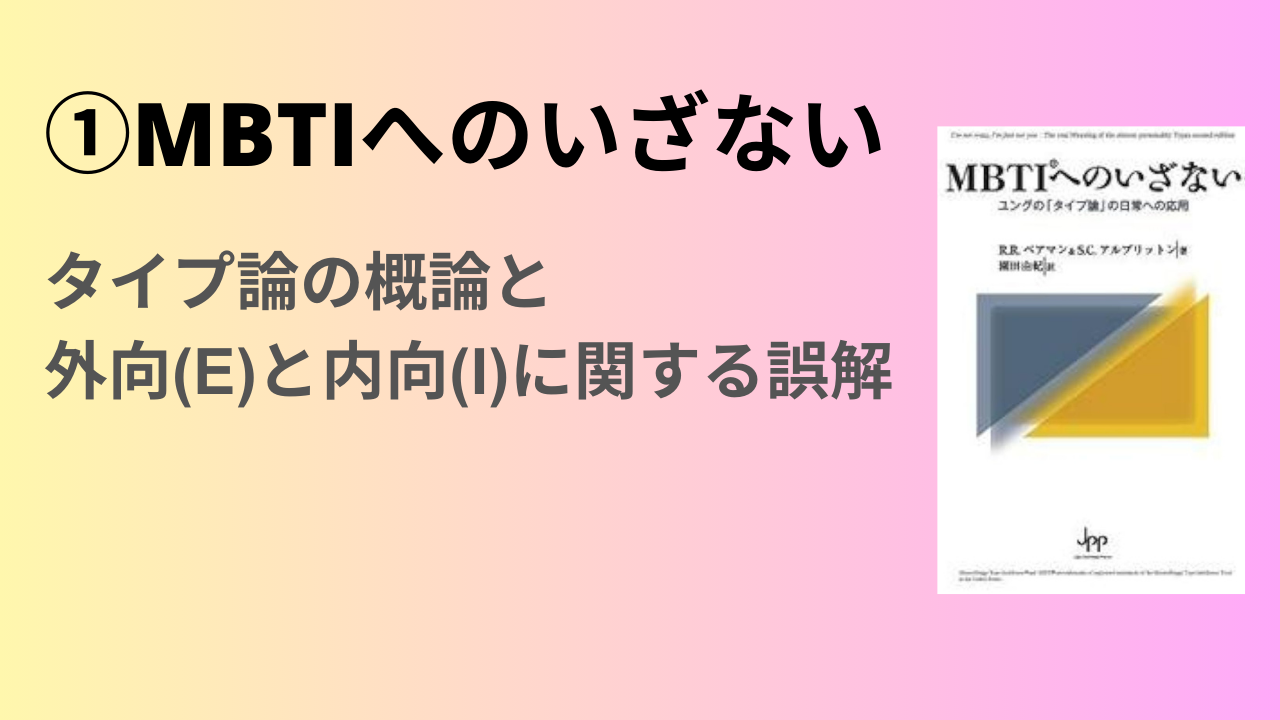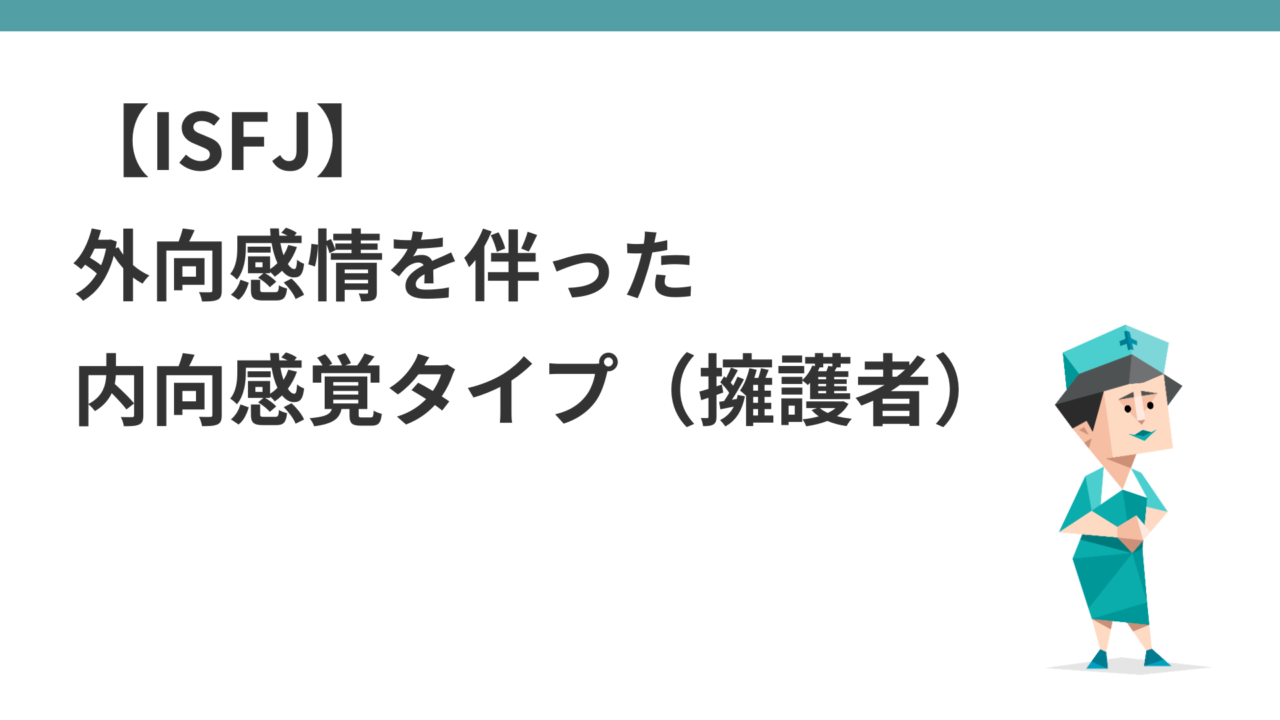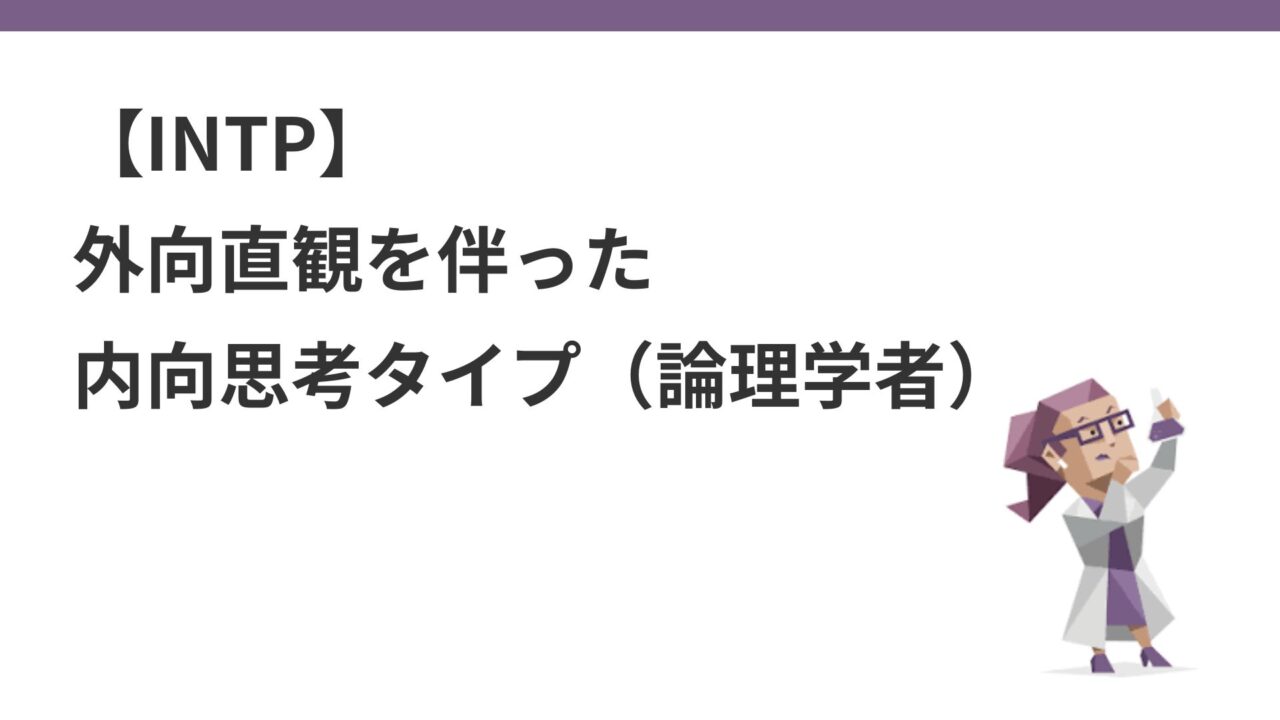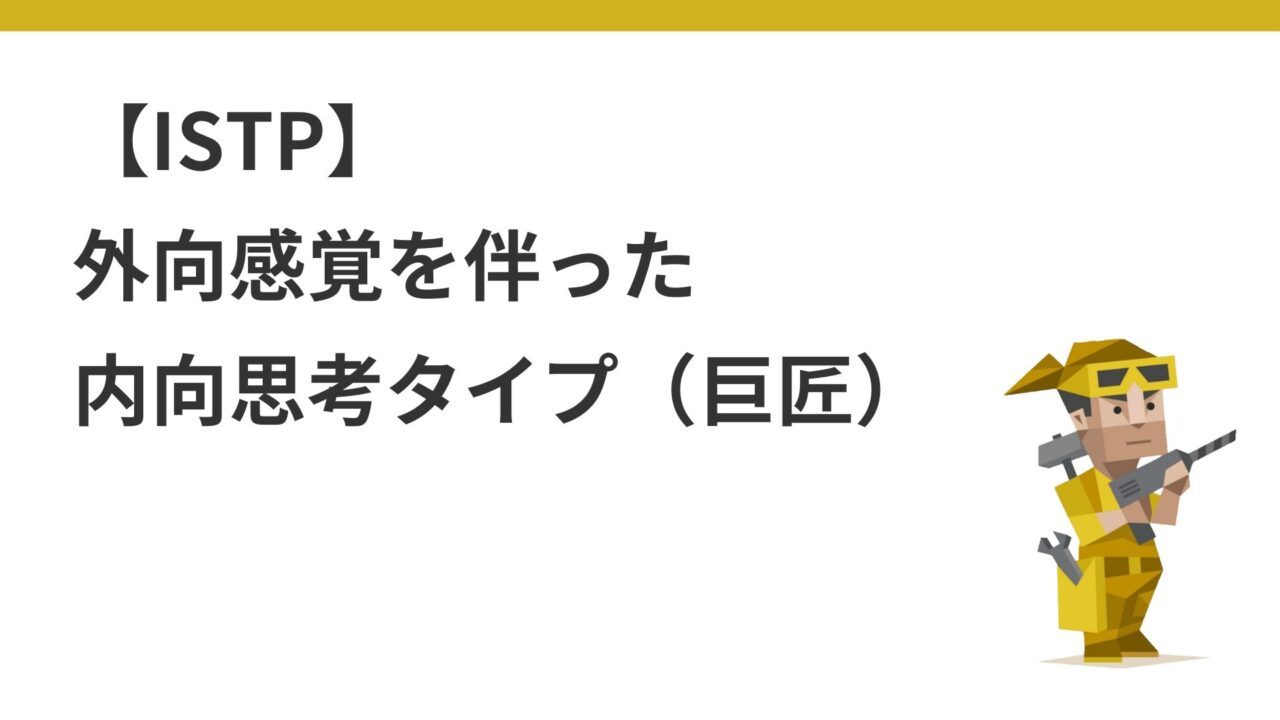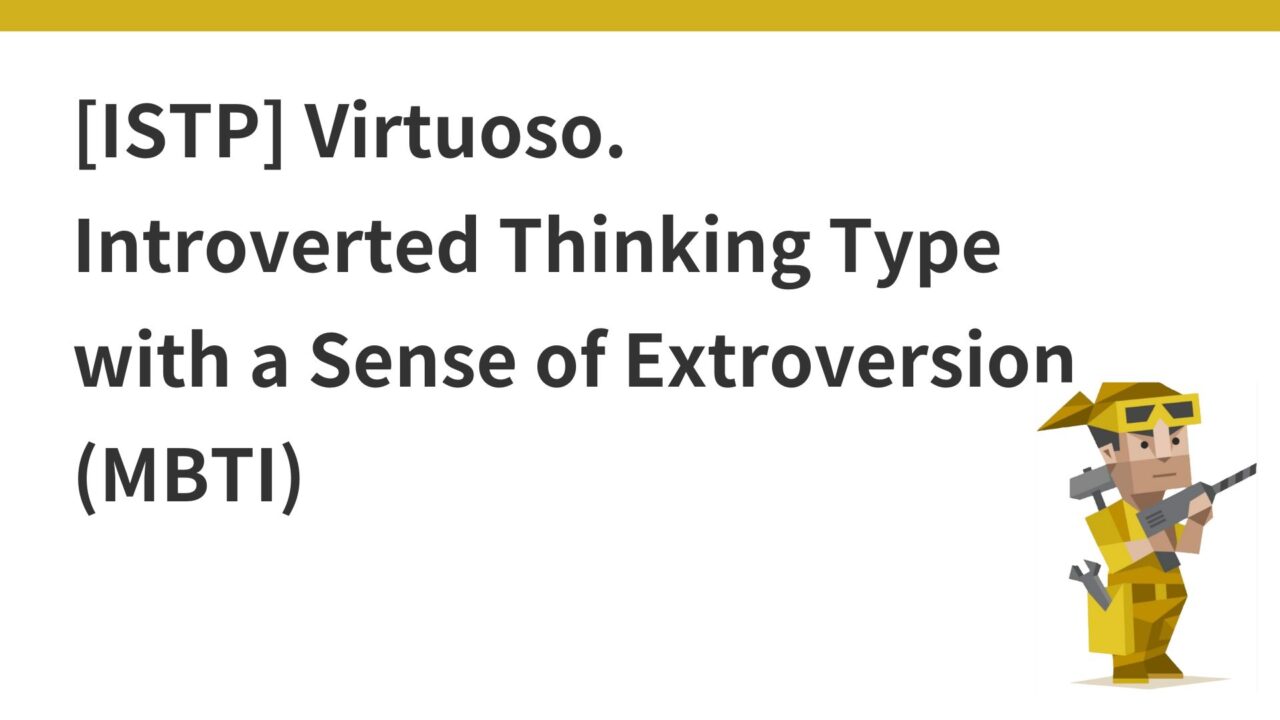- Introduction.
- Public’s impression of ESFJ
- Fe-Si: Extroverted emotional type with introverted sensation
- Characteristics and decision-making process for primary and auxiliary functions
- Difference between ESFJ and ISFJ
- Impression of ESFJ to others: caring
- To reinforce introverted thinking (Ti) in inferior functions
- Communication Features
- Reactions during stress and points for improvement
Introduction.
I will summarize the following perspectives on each MBTI personality type.
- Public Impressions
- Characteristics of the primary and auxiliary functions and the decision-making process
- Impression to the surroundings
- Inferior Functions and How to Enhance Inferior Functions
- Communication Features
- Reactions during stress and points for improvement
In this issue, we discuss ESFJ.
Public’s impression of ESFJ
If you Google ESFJ, related searches include “ESFJ compassionate,” “ESFJ kind,” “ESFJ sociable,” “ESFJ meddlesome,” and “ESFJ interfering.
Described as “consuls,” celebrities include Taylor Thrift, Bill Clinton, and Jennifer Lopez.
Fe-Si: Extroverted emotional type with introverted sensation
ESFJ cognitive functions in order of development are as follows
- Primary function (the function you are most aware of): extraverted affect (Fe)
- Auxiliary functions (functions that function well but are difficult to notice by themselves): introverted sensation (Si)
- Third function: extroverted intuition (Ne)
- Inferior function: introverted thinking (Ti)
The following is a brief description of how each cognitive function affects an individual’s perception and behavior
| cognitive function | Inward (i) | Outgoing (e) |
| Intuition (N) | Pattern recognition – inner insights and future predictions | Explore new possibilities – ideas and abstract concepts |
| Thinking (T) | Logical analysis – building internal theories and organizing thoughts | Objective judgment – decision making for efficiency and fairness |
| Emotion (F) | Deep empathy – a deep understanding of personal feelings and values | Social harmony – forming emotional connections with others |
| Sensation (S) | Details of reality – reflection of inner concrete memories and experiences | Actual experience – direct interaction and action with the outside world |
Fe-Si: Make decisions based on past experience and performance, while taking into account the feelings and social expectations of others.
Characteristics and decision-making process for primary and auxiliary functions
Extroverted affect (Fe): social harmony
Extroverted affect, the primary function of ESFJ, emphasizes relationships with others and social harmony. It is important to maintain harmony with those around us and to consider what behavior is most beneficial to others.
Introverted Sense (Si): Focus on Reality
The introverted sense, an auxiliary function of ESFJ, is adept at understanding and evaluating the real world based on past experiences and detailed facts; ESFJs value consistency and order and tend to adhere to an existing framework. In everyday life, they are characterized by planning and attentiveness and often take a reliable, practical approach.
For example, in a project management situation, ESFJ uses extraversion emotion (Fe) to understand how team members are feeling and what they need. It seeks to create an environment in which everyone is satisfied and can work cooperatively. Then, using the auxiliary function Si, they develop a concrete, workable plan, drawing on past project successes and existing methodologies. Emphasis is placed on following established procedures to achieve consistent results.
Difference between ESFJ and ISFJ
Both ESFJ and ISFJ are emotionally and sensory oriented, but have several different characteristics due to differences in introversion and extraversion, as well as differences in their primary and auxiliary functions.
Both seek order and stability based on past experience and facts, but ESFJs are extroverted and sociable, while ISFJs are introverted and reserved.
Impression of ESFJ to others: caring
- Friendly: ESFJs have a very sociable and approachable personality and can quickly get along with new people. Open and friendly to many people.
- Compassionate: Sensitive to the feelings and needs of others and takes pleasure in helping those in need. Highly empathetic and compassionate toward others.
- Cooperative: is a team player and prefers to work together to achieve goals. Strives to maintain group harmony and values cooperation with others.
- Organized and hardworking: good at planning and organizing. Works efficiently and pays attention to detail. Always prepared and follows a plan.
- Over-involvement: may be perceived as over-involvement in the affairs of others in an attempt to become actively involved in the affairs of others. May infringe on the privacy and autonomy of others.
- Strong need for approval: they have a strong tendency to seek recognition and approval from others, and this may be reflected in their self-centeredness. May be overly dependent on the evaluations of others.
- Resistance to change: shows resistance to new methods and ideas and has a conservative side. May not like change and stick to existing ways of doing things.
My impression is that he is the type of person for whom the word “caring” best fits.
However, since there are various types of people, it is difficult to find the right balance because too much caring may lead to “meddling, over-interference, and over-caring”. Although the person is genuinely thinking of the other person and offering a helping hand, the other person may feel that he/she is being too “noisy” (especially INTPs), but since it is an unconscious kindness, it is difficult to point out to the person and he/she may keep his/her distance.
I also feel that many of them are basically chatty and often counsel others. They are also clear about their feelings of joy, anger, sorrow, and pleasure.
While he has a good sense of planning and responsibility, likes to be in harmony with his surroundings, and is supportive, he is anxious without rules, has a high need for approval, and is uncomfortable with confrontation.
To reinforce introverted thinking (Ti) in inferior functions
ESFJs have relatively the least developed introverted thinking (Ti), a recessive function.
This function analyzes information and concepts internally and seeks logical consistency. Trying to understand things as a coherent system and emphasizing the elimination of contradictions, Ti plays an important role in many fields, including scientific research, programming, problem solving, and logical argumentation.
ESFJs may find it difficult to make decisions based on objective data and logical analysis because they prioritize empathy with others and emotion-based decision making.
Develop logical thinking skills
Participate in activities that require logical thinking. For example, regularly play games such as chess, puzzles, Sudoku, etc.
Learn to make decisions based on data and facts
Practice gathering data and facts to make decisions in everyday life. For example, collect and analyze data for household budgeting and health care.
Cultivate critical thinking
Try to develop a critical perspective when evaluating information in everyday life. For example, learn how to read news articles and scientific reports to logically question and check facts.
What we need to learn to respect different types
Incidentally, the types in which this introverted thinking (Ti) is most developed are ISTPs and INTPs; ISTPs and INTPs are excellent, or rather natural, at logical analysis and building internal logical systems.
The way ISTPs and INTPs think and approach things, and the logical way they speak, may help ESFJs to find balance and may be helpful in many ways.
ESFJs need to learn to respect the different types of people, as clarifying theories and models about global issues can sometimes provide an important foundation for human relations as well.
Communication Features
Positive feedback
- Characteristics: Good at praising and encouraging others.
- Line: “Great presentation! I really admired your ideas.”
Provide detailed information
- Characteristics: Tends to provide specific and detailed information.
- Line: “In order to make this project a success, you should do this first and then this. Specific steps…”
Compassion and empathy
- Characteristics: Very sensitive and empathetic to the feelings and needs of others. Listens carefully to others and strives to understand their feelings. When they find someone in need, they naturally try to support them.
- Lines: “That must have been really hard. Let me know if there is anything I can do to help.”
excessive self-sacrifice
- Characteristics: Sometimes puts the needs of others too high and ignores his own needs.
- Line: “I’m fine, I’ll do this for you.”
Over-interference/nosiness
- Characteristics: Can be overly involved in other people’s problems. May intrude on the privacy of others.
- Lines: “You don’t have to do it that way, you should do it this way. Let me help you.”
Reactions during stress and points for improvement
When exposed to stress, ESFJ can trigger a series of typical reactions, with an over-expression of the primary function, extraverted affect (Fe), or the emergence of an inferior function, introverted thinking (Ti), which is usually under-used.
Feels stressed when others are overly critical, unpredictable, unstable, or not loyal. Feels disgusted and upset by people who are more interested in their own personal ideas than ideas that can be shared with others, and who try to be cold and distant from others.
Reactions under stress
- Over-management and interference: Under stress, the person may over-manage his/her surroundings and become interfering with the behavior and feelings of others. They attempt to relieve their own anxiety by trying to control the behavior of others. They say, “I keep telling you you have to do this, but why don’t you understand?”
- Excessive Emotional Expression: overworked Fe can make one overly sensitive and emotionally overreact to the feelings and reactions of others. They may react strongly to even minor criticism or frustration and become emotionally unstable. ‘Why do I have to go through all this trouble?’
- Excessive preoccupation with the satisfaction of others: in an attempt to satisfy those around them, one may become self-sacrificing and ignore one’s own needs and feelings. This increases feelings of self exhaustion and emotional exhaustion.
- Surfacing inferior functions: As stress intensifies, introverted thinking (Ti), which is not normally used, surfaces, and the tendency to become self-critical and harshly critical of the actions and opinions of others emerges. They may become overly sensitive to logical flaws and inconsistencies and fall into self-introspection. ‘I don’t understand why that person thinks the way he does.’
Key Points for Improvement
- Balance introverted thinking (Ti): When introverted thinking (Ti) emerges, utilize it to logically analyze problems and find solutions, rather than being critical. It is important to avoid excessive self-criticism and to think constructively.
- Set limits: learn to set your own limits and say no appropriately to avoid overcompliance with the demands of others. Avoid self-sacrifice and protect your time and energy.
